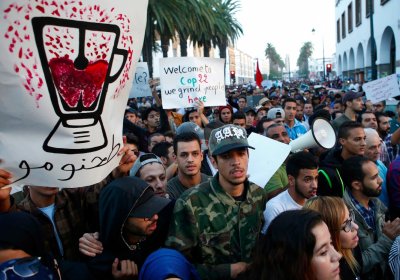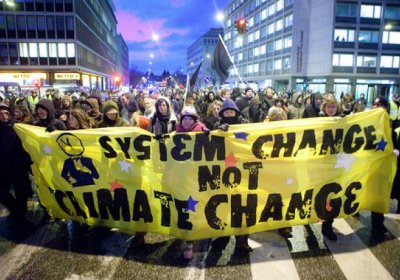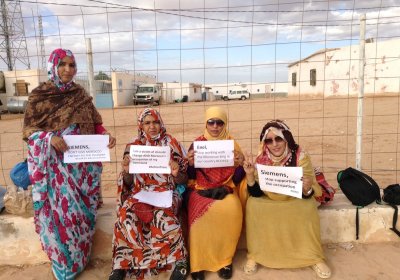Proceedings in the latest in the United Nations’ ongoing conferences on Climate Change — the November 7–18 COP22 that just concluded in Marrakech, Morocco — were disturbed by the news of the US election result.
A belligerently anti-environmental president is set to take office in the world’s greatest greenhouse polluting nation at the same time a shaky international climate treaty is being pieced together that will need US involvement to be effective.




 Tacloban, Leyte, Philippines, after Typhoon Haiyan in 2013. Photo: Tony Iltis.
Millions of people fleeing storms that flood major cities within hours, or intense fires that burn towns to the ground — welcome to a climate change apocalypse. It is not a scene from science fiction film, but a fast approaching reality.
Tacloban, Leyte, Philippines, after Typhoon Haiyan in 2013. Photo: Tony Iltis.
Millions of people fleeing storms that flood major cities within hours, or intense fires that burn towns to the ground — welcome to a climate change apocalypse. It is not a scene from science fiction film, but a fast approaching reality.


 People's Climate March, Sydney, November 29.
The Paris Agreement on climate change, which emerged out of the November 30 to December 12 COP21 UN climate talks, has been hailed as a “turning point for the world'. But it is long on rhetoric and short on real commitments – below are seven reasons why.
People's Climate March, Sydney, November 29.
The Paris Agreement on climate change, which emerged out of the November 30 to December 12 COP21 UN climate talks, has been hailed as a “turning point for the world'. But it is long on rhetoric and short on real commitments – below are seven reasons why.


